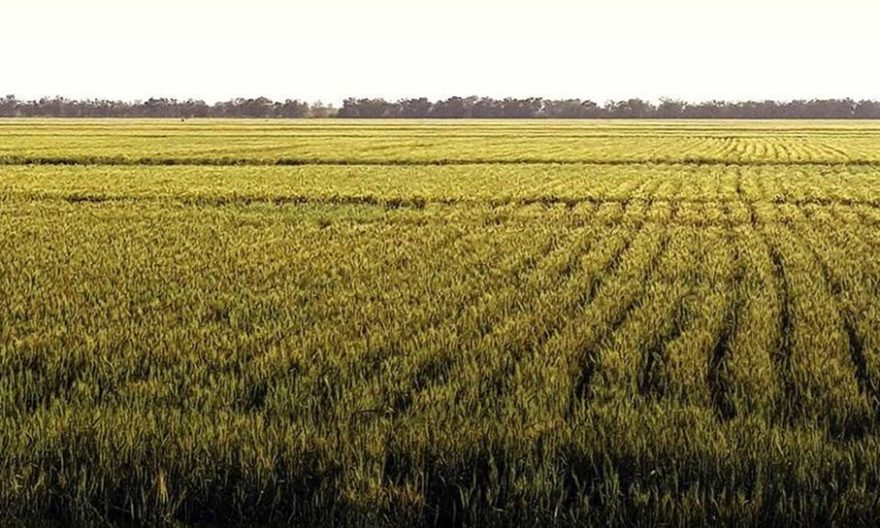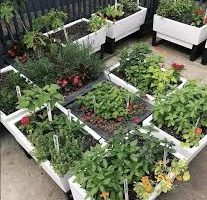
Ethiopia, a populous country in the Horn of Africa, has a rich agricultural heritage and is known for its diverse farming practices. In recent years, the Ethiopian government, in collaboration with various stakeholders, has been making concerted efforts to improve the performance of dry wheat cultivation and implement effective agriculture schemes to foster the development of the country including the pastoral community. This article explores the initiatives undertaken to enhance dry wheat performance and the broader agricultural strategies aimed at supporting the pastoral communities in Ethiopia, so said documents.
Ethiopian agricultural institutions have prioritized research and development programs to identify and breed wheat varieties that are adapted to the country’s arid and semi-arid regions. These efforts aim to enhance drought tolerance, disease resistance, and overall productivity of dry wheat crops, according to reiterated stamen of the Ethiopian government.
Agronomists argue that, to combat soil erosion and improve water retention, conservation agriculture practices such as minimum tillage, crop residue management, and contour plowing have been promoted. These techniques help conserve moisture, maintain soil fertility, and enhance the performance of dry wheat in Ethiopia’s challenging agro-climatic conditions.
Agri professionals further argue that ensuring farmers have access to high-quality and locally adapted seeds are crucial for improving dry wheat performance. The Ethiopian government, in collaboration with international organizations, has been working to strengthen seed systems, promote seed multiplication programs, and establish seed banks to provide farmers with improved seed varieties.
Recognizing the vulnerability of pastoral communities to climate change and other risks, efforts have been made to diversify livelihoods beyond traditional livestock rearing. Programs have been implemented to promote alternative income-generating activities such as beekeeping, horticulture, and agro forestry. These initiatives aim to reduce dependency on livestock alone and contribute to the resilience of pastoral economies.
Given the scarcity of water in arid regions, effective water resource management is crucial for agricultural development. The construction of small-scale water harvesting structures, such as ponds and reservoirs, has been encouraged to capture and store rainwater during the wet seasons. Additionally, the promotion of efficient irrigation techniques, such as drip irrigation, has helped optimize water use in dry wheat cultivation.
Strengthening agricultural extension services plays a vital role in enhancing the knowledge and skills of farmers. The Ethiopian government has invested in training and capacity-building programs to equip farmers with improved agricultural practices, including dry wheat cultivation techniques, crop management, and natural resource conservation. These initiatives empower pastoral communities to make informed decisions and adopt sustainable farming methods.
Ethiopia’s commitment to improving the performance of dry wheat and advancing the agricultural sector in pastoral areas is commendable. Through research and development, conservation agriculture practices, access to quality seeds, and various agricultural schemes, the country is making significant strides in enhancing dry wheat productivity and supporting the development of the pastoral economy. These initiatives contribute not only to food security but also to the overall well-being and livelihoods of the pastoral communities in Ethiopia. As these efforts continue, it is crucial to maintain collaborative partnerships, prioritize sustainable practices, and adapt strategies to the evolving challenges posed by climate change and other socio-economic factors.
Developing the pastoral economy in Ethiopia faces several specific challenges that need to be addressed to ensure sustainable growth and improved livelihoods for pastoral communities. Some of these challenges include:
Pastoral areas in Ethiopia are highly vulnerable to climate change, including prolonged droughts, erratic rainfall patterns, and desertification. These environmental challenges directly impact the availability of water and pasturelands, making it difficult for pastoralists to sustain their livestock and traditional livelihoods.
Pastoral communities often face limited access to essential resources such as water, grazing lands, veterinary services, and markets. Inadequate infrastructure, including roads and communication networks, restricts their ability to connect with markets and access basic services, hindering economic development.
Ambiguities and conflicts over land tenure and pastoral resource rights contribute to insecurity in pastoral areas. Insufficient legal frameworks and unclear land ownership often lead to land disputes, undermining the stability and productivity of the pastoral economy.
Access to financial services, including credit, savings, and insurance, is crucial for pastoralists to invest in their livelihoods, manage risks, and adapt to changing circumstances. However, financial institutions often have limited presence in pastoral areas, making it challenging for communities to access these services.
Limited access to quality education and vocational training hinders the ability of pastoral communities to diversify their livelihoods and adapt to changing economic opportunities. Educational disparities, particularly for girls and women, further exacerbate social and economic inequalities in pastoral areas.
The pastoral economy has historically received less attention compared to other sectors in Ethiopia. Developing comprehensive policies that address the specific needs and challenges of pastoral communities is essential. However, the implementation of such policies has often been inadequate, leading to limited impact on the ground.
Pastoral areas in Ethiopia are prone to inter-communal conflicts over resources, particularly during periods of drought or scarcity. Conflict undermines stability, disrupts economic activities, and forces communities to migrate in search of safety and resources.
Addressing these challenges requires a multi-faceted approach that involves policy reforms, investments in infrastructure and services, improving access to education and skills training, promoting sustainable land management practices, and strengthening social safety nets. By addressing these challenges, Ethiopia can unlock the potential of the pastoral economy and improve the livelihoods of pastoral communities.
Ethiopia, a landlocked country in the Horn of Africa, has a rich agricultural heritage and is known for its diverse farming practices. In recent years, the Ethiopian government, in collaboration with various stakeholders, has been making concerted efforts to improve the performance of dry wheat cultivation and implement effective agriculture schemes to foster the development of the pastoral economy. Ethiopia’s commitment to improving the performance of dry wheat and advancing the agricultural sector in pastoral areas is commendable.
Through research and development, conservation agriculture practices, access to quality seeds, and various agricultural schemes, the country is making significant strides in enhancing dry wheat productivity and supporting the development of the pastoral economy.
These initiatives contribute not only to food security but also to the overall well-being and livelihoods of the pastoral communities in Ethiopia. As these efforts continue, it is crucial to maintain collaborative partnerships, prioritize sustainable practices, and adapt strategies to the evolving challenges posed by climate change and other socio-economic factors.
The funding for policies aimed at supporting pastoral communities in Ethiopia comes from various sources, including the Ethiopian government, international organizations, donor agencies, and non-governmental organizations (NGOs). The funding is typically a combination of domestic resources and external assistance. Here’s an overview of the funding sources and the role of international organizations:
The Ethiopian government allocates its own budget to support initiatives and programs targeting pastoral communities. This may include investments in infrastructure development, education, healthcare, and social protection programs. The government’s financial contributions are essential for the sustainability and long-term success of these policies.
International donor agencies play a significant role in supporting policies and programs for pastoral communities in Ethiopia. Donors provide financial and technical assistance to address the specific challenges faced by pastoralists. These agencies include bilateral donors (such as the United States Agency for International Development, Department for International Development, and European Union) and multilateral organizations (such as the World Bank, United Nations agencies, and regional development banks).
BY LAKACHEW ATINAFU
The Ethiopian Herald January 14/2024


